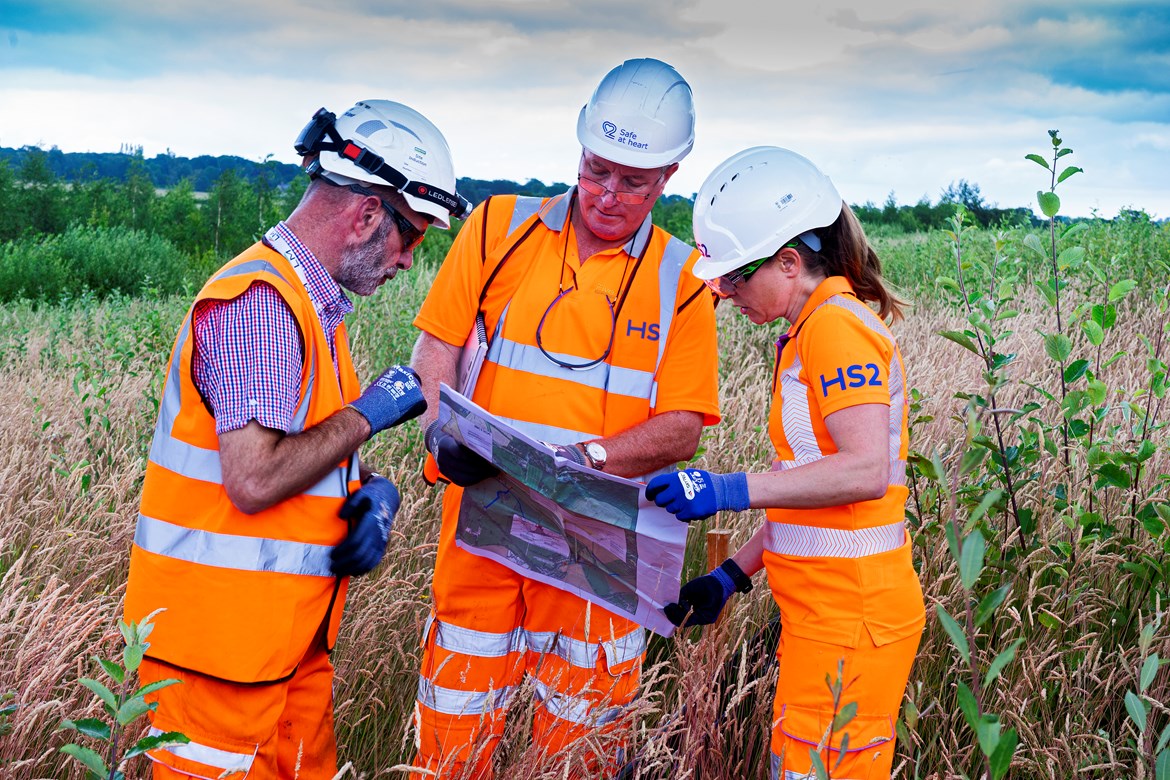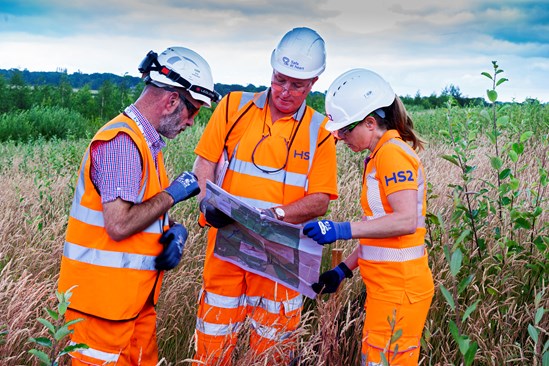In response to the growing demand for an ECoW accreditation within the construction sector, the Chartered Institute of Ecology and Environmental Management (CIEEM) launched a new training pilot in 2019. HS2 and the Scottish Environment Protection Agency (SEPA) sponsored the first phase of the pilot, but reduced income, linked to the pandemic, left CIEEM with a shortfall and plans were placed on hold.
Recognising that we will have the single largest requirement for ECoWs across the industry into the next decade and beyond, HS2 Ltd, together with partners Balfour Beatty and Atkins, agreed to meet a substantial proportion of the shortfall. As a result, 50 candidates, including ecologists working on HS2, will now complete the first ECoW pilot in the coming months, with registrations for the full scheme due to commence in early 2022. As a further sign of its commitment, ecologists working on HS2 are also supporting the pilot assessment process and HS2 Ltd’s lead ecologist is an active member of the steering panel for the pilot scheme.
Sally Hayns, CEO at the Chartered Institute of Ecology and Environmental Management said:
“Developing this new accreditation scheme is vital to improve the profile of the Ecological Clerk of Works role and ensure the quality of the ecological advice and supervision provided on construction sites.
“We welcome HS2 Ltd’s commitment to ensuring the ECoW role is delivered to a high standard and the financial support provided to enable us to complete the pilot scheme.”
Ecological Clerk of Works perform a critically important role during construction projects. They ensure contractors and clients comply with environmental legislation and planning conditions for the protection of biodiversity on work sites.
Tasked with delivering Britain’s biggest environmental programme, HS2 is providing employment and training to thousands of ecologists across its delivery lifecycle. It therefore recognised the significance of investing in this vital training programme to ensure that the UK and Ireland have the pipeline of skilled workers they need to deliver HS2 and other major infrastructure projects in the future.
One Phase One alone, between the West Midlands and London, HS2 will plant up to seven million trees and shrubs and create more than 33 square kilometres of new woodland, wildlife and river habitats. It will leave behind 30% more wildlife habitats than exist currently and form part the unprecedented HS2 Green Corridor that will bring improvements for people, places and nature along the route. ECoWs will have a vital role to play in ensuring that tailored ecology plans are delivered effectively to provide better habitats for local wildlife and protected species.
Peter Miller, Environment Director at HS2 Ltd said:
“We take the environmental cost of construction very seriously, as our investment in this nationally-recognised ecological accreditation shows.
“Ecological Clerk of Works are vital to safeguarding wildlife and protected species and we value the expertise they bring in helping us to deliver Britain’s new railway.”
By providing a cleaner, greener way to travel, HS2 will help cut the number of cars and lorries on our roads, cut demand for domestic flights, and help the country’s push to reduce carbon emissions. HS2 is already playing an integral role in the Government’s biodiversity net zero ambition, and this investment is a further sign of its commitment to ensuring that its ecology works fully support that goal.
ENDS

